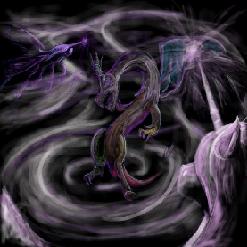
A translation of the ancient epic describing the battle in which Discord was locked in stone. Rendered in Modern Equestrian using common vernacular by T. Sparkle, this is the first truly accessible rendering of the poem to see publication. For both amateur historians and lovers of classical literature, it is an essential addition to any library.
Written for the February Write-Off, and inspired by this prompt: "A fire breaks out in the Everfree Forest."
Now available in Spanish, courtesy of SPANIARD KIWI.

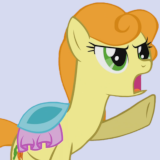




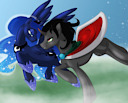
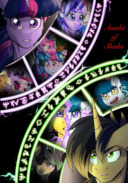



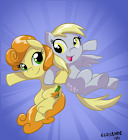

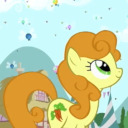




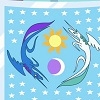


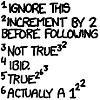
Feels like I'm back in literature class
A lot of works' been put into this...
Ohm... not really sure what to say about this. Points for trying something new, I guess, but maybe the place to use it...
In other words:
Okay, annoying smiley talk aside: Well done. I see by some comments that the style is not popular. I find it not only refreshing, but very fitting. This is likely my favorite entry thus far, to the extent that I would rate it far above the tale I myself submitted. I loved the Hydra especially. This story was sad, and inspiring, and had a great buildup to an amazing conclusion.
And this was awesome.
Heh, I think I know who wrote this just from the comments.
266269 Assuming that's some way of saying that praise = the writer, I'm afraid you're going to find yourself mistaken. I wrote Fresh Timber, not Fall of Discord. I have a very specific style, and that style is nothing like this.
Well done Sir. This is a fine piece of which I'm sure Sheamus Heany would be proud. I simply cannot believe something like this was done in a week.
FATHER MY CHILDREN
Seriously though: once upon a time, while creating prose for my urban-fantasy setting, I coined the word "culturalia" to indicate something that was an artifact from a parallel universe rather than a piece of fiction set there. Something which the inhabitants of that universe themselves might pick up and read. I have a soft spot for such writing, especially since my own finest literature has come from the genre, so please understand when I say: This is one of the finest pieces of pony culturalia I've seen, bar none, in my years on this site. Every little detail makes it look like it was ripped out of a journal of literature. The line numbering, the footnotes, even the story description meticulously staying in character … wow.
(Added this to the "Poetry" group for you, btw.)
I stand in awe. horizon already explained what I find most impressive. I also admire the tour de force of vocabulary on display. The words I myself learned (though possibly not for the first time) are whilom, mickle, tenebrous (definitely not the first time), and lenity (though I had a pretty strong, and correct, suspicion).
Having said that, and despite the age of this, and despite my qualms that my criticism may itself be mistaken or misguided given the sheer amount of effort that clearly went into this, I feel the need to hesitantly, timidly offer possible corrections:
I noticed several instances of "who's", which (unless I've completely lost my mind) should be "whose", unless "who's" is an older standard which this is a throwback to; and even if such an older form did exist, use of it would seem to contradict Twilight's notes.
if the throws of the struggle
I would have expected this to be "throes", although "throws" could conceivably be the intended word.
He guessed was to great
too
The Hydra did hence / from the hilly mountains.
The Hydra did hence, / uncomprehending of all,
In both cases, "did hence" seems to be used to mean "went", and I am not aware that "hence" can be used in this way (as a verb)—unless "do" can carry the meaning of "go". A possible alliterative substitute might be "hie".
I cannot overstress how much I enjoyed this piece: the story; the worldbuilding; the alliteration. Thank you.
GAH! dat justify!
whose
whose
Full review here, but in brief: I'm rather in awe of this. It's a truly remarkable thing. I can't say I truly enjoyed it as it's frankly out of my league, but it gets a like anyway for the sheer achievement.
This has some delicious footnotes.